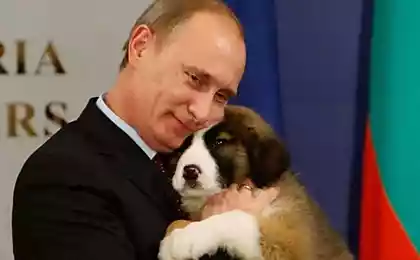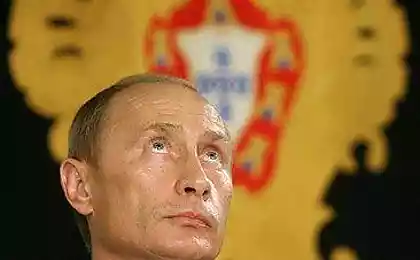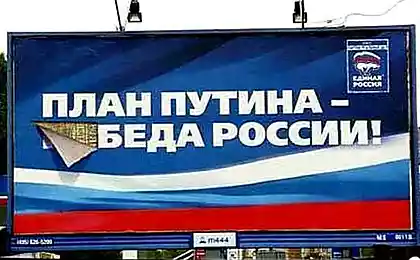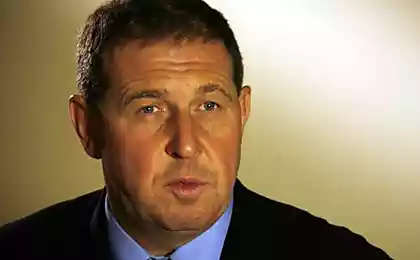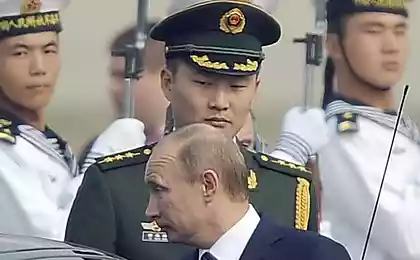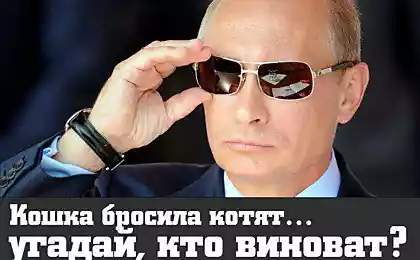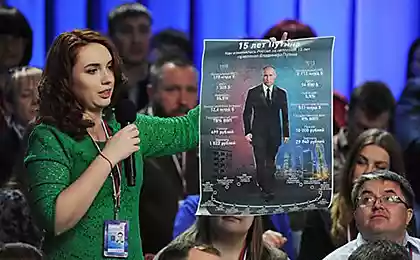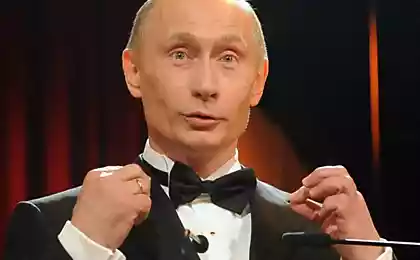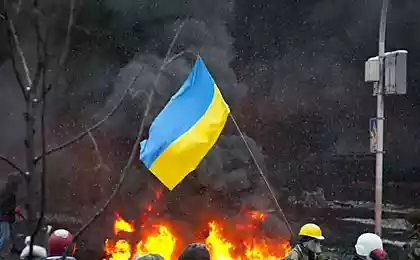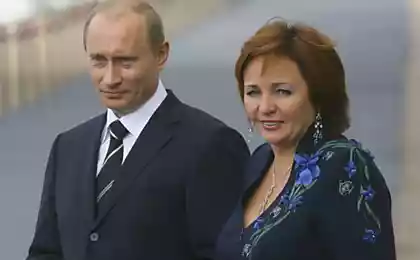291
We don’t know if Putin will stay, but we know who won’t be president.

Transit of power in Russia: is it happening or has it just begun? Since Wednesday, January 15, the neighboring state has become the number one news provider, forcing the international community to look for answers to questions: who will be president of Russia, why Putin did not appoint a successor, whether Medvedev’s resignation is planned and what all this means.
The resignation of the government in Russia
Here is a brief chronology of events. Russian President Vladimir Putin delivered a message to the Federal Assembly and proposed amendments to the Constitution. In particular, the priority of the Basic Law of the Russian Federation over international law, a ban on foreign citizenship and a residence permit in another state for figures holding key positions in the country (heads of federal subjects, ministers, judges, etc.).
And the main thing is to tighten the requirements for presidential candidates: residence in Russia for at least 25 years (now requires at least 10 years), lack of foreign citizenship not only at the time of the election, but also at any time before.
“I also know that our society is discussing the constitutional provision that the same person should not hold the post of President of the Russian Federation for more than two consecutive terms. I do not believe that this issue is of principle, but I agree with it, Putin said of a key change.
News about Putin
Presidential powers of Vladimir Vladimirovich expire in 2024. For the first time he took up the main post in the country on December 31, 1999: then Boris Yeltsin proposed to become acting. Putin was elected President on March 26, 2000 (May 7 he took office), on March 14, 2004 his second term began. Then, in 2008-2012, there was a period of premiership. And then another, third, presidential term (March 4, 2012 was elected, May 7, 2012 took office), and finally, on March 18, 2018, Putin was re-elected as President of Russia.
But back to Wednesday, January 15th. Following the message, Dmitry Medvedev announced his resignation from the post of Prime Minister. Putin accepted the resignation of the government, appointed Medvedev as his deputy – to the post of deputy chairman of the Security Council specially created for this, recommended Mikhail Mishustin, who headed the Federal Tax Service, as prime minister. On Thursday, January 16, Mishustin’s candidacy was approved by the State Duma and the president signed a decree on his appointment.
Some experts immediately expressed the opinion that the transit of power in Russia has begun, and its scenario is similar to that of Kazakhstan. For example, Russian political scientist and publicist Ekaterina Shulman commented on this for DeutscheWelle: “This is similar to the “Kazakh scenario”, that is, some distribution of presidential powers between collective bodies and the possibility for the previous president to retain a certain honorary title, while associated with personnel powers.”
Inbusiness.kz asked political scientists what is happening in the political arena of Russia, whether it can be compared with the Kazakh version of change and what Kazakhstan can expect from these political processes.
Askar Nursha, political scientist:
Putin’s initiatives were announced as part of the President’s address to the Federal Assembly. It is a document of the annual political cycle. Therefore, in my opinion, the head of the neighboring state solves two main tasks with his initiatives: first, determines the priorities of the state apparatus for the coming year, and secondly, pursues long-term goals, since a number of instructions and initiatives in their political significance go beyond the annual cycle.
Putin himself voiced the reason why he is taking such initiatives, his motivation is clear: most importantly, he says there is a demand for change. The envoy in no way answers the question of whether Putin himself will remain president after 2024 or who will become president.
We already know who won’t be president. Putin proposes to put a barrier on the way to the presidency and key political positions in the country to persons who previously had or have foreign citizenship. And this is a continuation of the policy of nationalization of the elite.
In addition, the configuration of the political field in the country will change, since the current elite is not enough for transit. The current Constitution of the Russian Federation in its highest phase will somehow lead to a model through which Russia has already passed and which will be difficult to repeat in the new situation. This is a model of the Putin-Medvedev tandem of 2008-2012. If you follow it, Putin must give up someone’s seat after 2024 and come back. But, firstly, age restrictions are included, and secondly, the situation in Russia’s political elite is completely different than it was ten years ago. Therefore, the parameters of key political institutions will be reconfigured. The powers will change, the system of checks and balances between the president, the government and the parliament will be built in a new way.
I think it is too early to say that the transit has begun, while the general outlines within which the Russian authorities will carry out the transit are determined. The first key steps towards this have been taken.
As for Medvedev, as noted by Russian political scientists, his anti-rating among the population is skyrocketing. And then Medvedev is a loyal ally of Putin, tested by time and tandem. This is the man who headed his campaign headquarters in 2000, he has been with Putin for 20 years, as prime minister since 2012. And now Medvedev is the object of discontent from the parliamentary opposition, the real opposition and the population. Therefore, Putin’s task is not to get rid of him, but to transfer him to another area of work, where he will be useful and have significant powers.
In proposing a new man as prime minister, Putin is again following a request for elite renewal. Until 2024, I think that Mishustin will either play the role of a “filter”, which will collect all the negativity, or in a practical way will show its competence and deal with the issues of increasing the tax base and the state budget. And a plus, in my opinion, in fact, we will talk about the “deoffshorization” of the Russian elite – the fight against offshore companies and the return of capital to the country.
I don’t think Russia follows any Kazakhstani model. Of course, there is no denying that the neighboring country looked at what has been happening in our country over the past year with great interest, including practical interest. Yet Kazakhstan is only about to introduce what has been in place in Russia for more than two decades: the parliamentary opposition. The proposed amendments will take Russia even further.
What we have in common is a huge social package. What Putin outlined in the message is unprecedented in scale and raises the question: where will the government get the money to implement this package against the backdrop of a deteriorating economic situation? But protest moods have intensified in Russia, so the government is going to mitigate them through social infusions, thus solving both current and long-term tasks. By 2024, Putin does not need social protests to turn into political protests. Therefore, social issues are now being resolved with a view to a few years ahead.
If we talk about future relations between Russia and Kazakhstan, then the change of the prime minister in Russia is unlikely to change anything in them. Relations between Kazakhstan and Russia, as history shows, are long-term and focused on good neighborliness. It is clear that both Russia and Kazakhstan will accelerate the process of elite renewal, new faces will come. They need to prioritize the long-term interests of the two states, and that is a matter of communication.
From the point of view of the economy and relations within the framework of the EAEU, we know that Eurasian integration takes into account the interests of Russia more than partners. I don't see any change here. The Russian government is now headed by a man who has an economic background and an understanding of how the Russian economy works. Perhaps with his arrival, Russian economic policy, both domestic and foreign, within the framework of integration, will become more practically oriented. For the past two decades, Putin has often been accused of prioritizing politics over economic interests. We'll see how Mishustin does.
Should Kazakh business be afraid of tightening conditions within the EAEU, reducing opportunities to enter the Russian market? I think that the economic bloc in the Russian government will strengthen, and this will automatically lead to a tightening of negotiating positions. But we must not forget that in Eurasian integration, personal political agreements significantly influence the course of economic processes. Politics is no less than pure economics.
Islam Kuraev, political scientist:
- In Russia, it is likely that Putin wants to stay for another term. Rolling according to the past scenario will definitely not pass: the level of protest sentiment in the country is high, and another “reshuffle of figures” can lead to consequences. Therefore, the best option seen in the Kremlin is to change the Constitution so that Putin remains in power.
The resignation of the government is more demonstrative, only the impression of changes in the country. The old move throughout the post-Soviet space is to take steps to extend the presidential powers.
Why did these processes begin now? This is the strategy of the state machine, which lays the foundation for years to come. It can be concluded that Russia aims to reduce the level of protest moods and resolve a number of issues before the elections, and this should be done by “new people all with the same stuffing.” We understand that radical changes require new personnel and new faces, but Putin is still in power and is likely to go for another term.
Liberalization in the proposed amendments can only be considered a ban on two presidential terms in a row, everything else looks more like autocracy. In world practice, we see that democratic states elect a president for two terms with broad powers, this is the French system of governing the country, which has been for many years. If Russia were a parliamentary republic, then the question would be different, but it is not.
I do not think that political reform in Russia will change anything in Kazakhstan. We are a unitary state, and our neighbors have the status of a federation, so there are no common ground. Perhaps we will have lobbyists who will want to adopt some of the bills. But I think there will be no significant shifts. We are not the same in the political system.
As for the economy, it is necessary to consider everything from a different angle, which means that there is no connection with politics. Everything will remain at the same level.
Political news of Kazakhstan
If we talk about trends ("Kazakhstan scenario"). I would say that it is not us who set them, but the time that goes by. Putin, in principle, is not so old, so he intends to go for another term. Perhaps there are more echoes of the old school than the new trends that Kazakhstan dictates. We are not the ones who can set trends, we live in our own small world.
Elena Tumashova

Mirrors of betting sites: why they are necessary
Maritime themes in online casinos: features of slots

